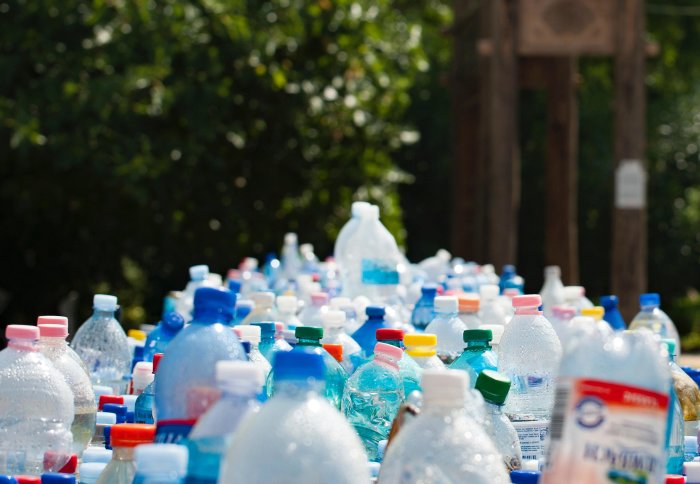Imperial researchers tackle challenges of plastic waste in the UK

A cross-faculty team of Imperial experts will be working with industrial partners on an EPSRC-funded programme on preventing plastic pollution.
Professor Jason Hallett (Department of Chemical Engineering) is the Principal Investigator for the £1M grant, which brings together the expertise of researchers from across the Faculties of Engineering, Natural Sciences and the Centre of Environmental Policy, drawing upon the work of Imperial’s Ocean Plastics Solutions Network.
Plastics are present in a wide range of products in modern society, and plastic waste pollution in the ocean and the wider environment has become a global problem. The multidisciplinary project, titled “Holistic integration of technology, design and policy for a greener plastic future” will look for solutions across the entire life cycle of plastics.
Professor Jason Hallett said: “The main goal of our project is to extend the useful lifetime of plastics within our economy, so that no plastic escapes into the environment. This will involve re-thinking the way we use plastic, the way we re-use and recycle it, how it’s made and what it’s made from. We want to live in a future where plastic products can be re-used as long as possible, then biodegrade when their (very long) useful life has been expanded. It is vital that our material needs continue to be met into the future, without compromising the health of the world we live in.”
The research will be structured around two main aims, one of them focussing on resource preservation. It’s clear that single-use plastics made from fossil resources are unsustainable, so the Imperial team will work with new technologies and renewable resources to develop plastic materials that are biodegradable and easier to recycle, while also encouraging reuse through new product designs.
It is vital that our material needs continue to be met into the future, without compromising the health of the world we live in. Professor Jason Hallett Department of Chemical Engineering
Waste prevention is the other main focus of the programme, tackling the challenges around the end-of-life of plastic materials. Taking a consumer and policy-oriented approach, researchers will study how to increase recycling rates and maximize the length of time plastic remains in the live economy.
The Mechanics of Materials division in the Department of Mechanical Engineering is contributing expertise in mechanical characterisation and micromechanical modelling of blends and composites, optimisation of adhesion and composites recycling.
Professor Maria Charalambides said: “This project is a very exciting venture for the Mechanics of Materials division; Drs Balint, Blackman, Pimenta, Taylor and myself will tackle the challenging problem of recyclability of multi-layer plastic packaging. The project will be even more interesting given the possibility of strong interactions with our colleagues in Dyson school, Materials, Chemistry, CEP, Chemical Engineering, Aeronautical Engineering and our strong industrial links. The problem of plastic waste cannot be solved without such multidisciplinary collaborations.”
The project is one of the first to receive funding through the UK government’s £20 million Plastics Research Innovation Fund (PRIF), after being successful in the Creative Circular Economy Approaches to Eliminate Plastics Waste competition. J Sainsbury Plc, Johnson Matthey, Nestle UK Ltd and PepsiCo are industrial partners.
Article text (excluding photos or graphics) © Imperial College London.
Photos and graphics subject to third party copyright used with permission or © Imperial College London.
Reporter
Press Office
Communications and Public Affairs
- Email: press.office@imperial.ac.uk
